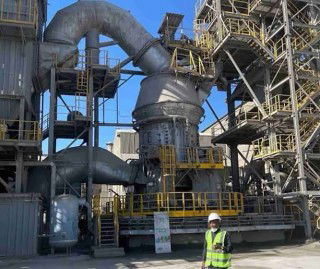The Low Emissions Intensity Lime & Cement (LEILAC) consortium has completed the Preliminary Front End Engineering Design (pre-FEED) study for the carbon capture pilot plant.
The project will now enter the full Front End Engineering Design (FEED) phase following a decision taken at the General Assembly meeting hosted by ECN on 29 September in Petten, The Netherlands, where results from the preliminary project phase were reviewed.
The five-year LEILAC project, supported by the European Union’s Horizon 2020 research and innovation programme, aims to apply Calix’s Direct Separation technology to cement and lime plants, and validate the resulting process demands and performance. Once proven, and scaled up to apply to a fully-sized production plant, this technology should enable both the cement and lime industries to capture their unavoidable process carbon dioxide (CO2) emissions for minimal energy penalty (just compression) and at comparable capital costs to conventional emitting equipment.
During the FEED phase a detailed design of the pilot and its equipment will be developed, along with its integration into the HeidelbergCement plant at Lixhe, Belgium.
Phil Hodgson, Calix MD and CEO and Chairman of the LEILAC executive board commented:
“This announcement marks a significant milestone and further demonstrates the momentum which is building around the LEILAC project. The completion of the pre-FEED has been achieved in line with the project schedule and is testament to the strong level of collaboration which has been cultivated between the consortium partners, who have all worked together to make significant progress on this breakthrough project.
“We are really encouraged with the progress we have made since announcing the launch of the project in January 2016 and are looking forward to pushing ahead on the next phase with the aim of completing our FEED study in 2017.”
The consortium is led by technology provider Calix, and comprises HeidelbergCement, Cemex, Tarmac, Lhoist, Amec Foster Wheeler, ECN, Imperial College, PSE, Quantis and the Carbon Trust. It is supported by Cembureau, ECRA, and EuLA. In addition to the H2020 grant, the consortium is contributing EUR9m towards the project.
For more information on this innovative technology see ICR July 2016 issue p42.
